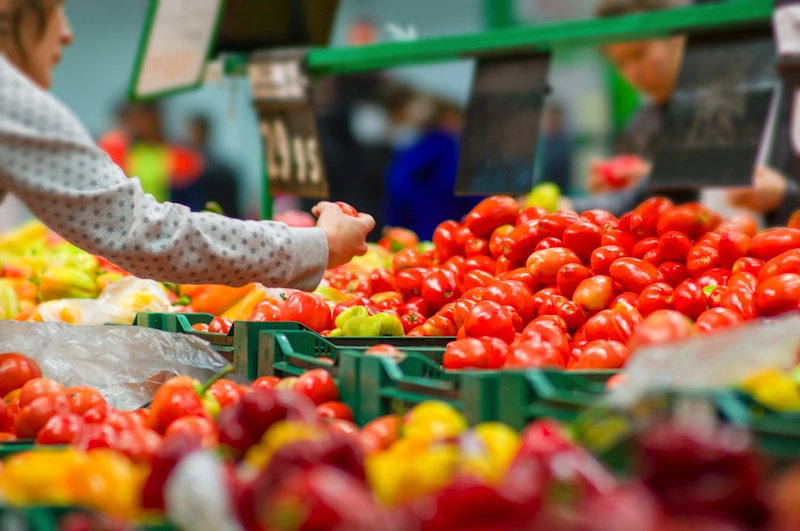WASHINGTON (AP) — A wide-ranging farm bill the House is considering would cut food stamps by $2 billion a year and make it more difficult for some people to qualify for the domestic food aid program.
Passage of the five-year, half-trillion-dollar farm bill could depend on the level of cuts to the $80 billion-a-year program. Many House conservatives have said the cuts don’t go far enough, while liberals have argued against any cuts, saying the House farm bill could take as many as 2 million recipients off the rolls. The cuts are about 3 percent of the food stamp program, now called the Supplemental Nutrition Assistance Program, or SNAP.
The chamber is expected to begin voting on 103 amendments to the farm legislation, including bids to reduce or expand the food stamp cuts, on Wednesday.
Farm-state lawmakers have been scrambling to win bipartisan votes for the measure, facing defections from both parties over the SNAP cuts. It was unclear whether Republican leaders will be able to gather the votes they need to pass the bill, which would also expand some agriculture subsidies and set policy for rural development programs.
Conservative groups have lobbied aggressively against the legislation, arguing for greater cuts to farm subsidies and food stamps. The White House has threatened to veto the bill, saying the food stamp cuts are too high.
In an effort to push the legislation through, House Speaker John Boehner, R-Ohio, said last week that he will vote for it, while making it clear that he doesn’t really like it. He said he wants to get the bill to House-Senate conference and passing the bill is better than doing nothing. The legislation would cut around $4 billion a year in overall spending on farm and nutrition programs.
Democratic leaders have said they will wait to see how the chamber votes on amendments, but have so far signaled opposition to the measure. Democratic Leader Nancy Pelosi of California is a “likely no” on the bill, according to a spokesperson, and No. 2 House Democrat Steny Hoyer of Maryland called the food stamp cuts “irresponsible” on Tuesday.
House Agriculture Committee Chairman Frank Lucas, R-Okla., pleaded for votes on the House floor Tuesday, saying a robust farm policy is necessary to avoid farm crises like those in the 1930s and 1980s.
“I will work with all of you to improve this draft,” he said. “I ask you to work with me.”
The House legislation would achieve some of the food stamp cuts by partially eliminating what is called categorical eligibility, or giving people automatic food stamp benefits when they sign up for certain other programs. The bill would also end a practice in some states of giving low-income people as little as $1 a year in home heating assistance, even when they don’t have heating bills, in order to make them eligible for increased food stamp benefits.
Lucas called his bill as the “most reform-minded bill in decades,” saying it would make needed cuts to food stamps and eliminate $5 billion a year in direct payments, subsidies that are paid to farmers whether they grow or not. The bill also expands crop insurance and makes it easier for rice and peanut farmers to collect subsidies.
It was uncertain how amendment votes could affect the vote on final passage, which could happen this week or next. Any alterations to the delicate balance of farm subsidy support included in the bill could cause members who represent the regions or crops affected to turn on it. Amendments targeting rice, peanut, sugar and dairy subsidies, among other crops, are expected to have contentious votes. The chamber will also vote on a Democratic amendment to eliminate the food stamp cuts.
It has been more than five years since the House passed a farm bill. Since then, Republicans took control of the chamber and more than 200 new members have been elected — many of them conservatives who replaced rural Democrats.
The politics of farm and food aid have also changed since then. Farm country is enjoying record-high prices and is one of the most profitable sectors of the economy, causing many lawmakers to question why farmers still receive more than $15 billion a year in subsidies. And the food stamp program has doubled in cost as the economy has struggled.
Farm groups were scrambling Tuesday to lobby lawmakers on the bill.
Chandler Goule, a lobbyist for the National Farmers Union, said his group is telling Democrats that the food stamp cuts will likely be reduced in conference because the Senate farm bill passed last week has a much smaller cut — about one-fifth of the amount of the House cuts, or $400 million a year. With the presidential veto looming, lawmakers will have to bring that number down, Goule said.
“We need to remember this is not the last vote,” Goule said he is telling lawmakers.
With leadership staying mostly on the sidelines, much of the lobbying has been left to the farm groups, Lucas and Minnesota Rep. Collin Peterson, the top Democrat on the agriculture panel. On Tuesday, both said they think they have the votes for passage.
Peterson said predicted at least 40 Democrats will support the bill. He too has been telling fellow Democrats that the food stamp cuts are likely to change in a conference with the Senate.
If the bill fails, he said, Congress will just have to haggle over another extension of current law. The 2008 farm bill was extended in January.
“If we can’t get this through now, I don’t know when we can,” he said.
___
Follow Mary Clare Jalonick on Twitter: http://twitter.com/mcjalonick
Copyright 2013 The Associated Press.










